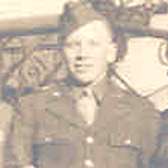
Herbert Launer was born the only child in a middle class Jewish family. Herbert’s father was a fur dealer and a highly decorated soldier of the Austrian army during World War I.
1933-39: On November 9th, 1938, Kristallnacht (the night of broken glass), Herbert and his family were severely beaten by four Nazi hoodlums who broke into their apartment, smashing furniture and forcing Herbert’s father into the street to scrub the sidewalk with a toothbrush. The next day Herbert was nearly kicked and beaten to death by his closest non-Jewish friend, a teammate on his soccer team.
To escape further persecution, Herbert’s parents sent him alone to the United States at age fourteen. Because of the quota system in place at the time, Herbert was the only member of his family to qualify for immigration. Herb left Vienna on April 30, 1939 and arrived in New York on May 8th. He was met by a cousin from Cleveland, Ohio, where Herb spent the next seven months before being sent to New York to live with relatives he never knew existed. At 17, Herb had moved into a Boys Home, was working full time, and going to college at night.
It took Herbert nearly a year to learn that his parents had escaped Vienna and had arrived in England on September 1, 1939, the start of World War II.
1940-45: Two months after his 18th birthday, Herb joined the U.S. Army, though he was still not a citizen. Because of his military service, Herb’s parents were finally able to receive the visas they needed to come to America. They arrived in New York on the day that the Army sent Herbert to the Pacific Theatre of War. At the end of the war, Herbert was finally reunited with his parents after 7 years apart.
Herbert spent 51 years in the investment - stock brokerage business until his wife of 50 years died in August 2001. Aside from his two children, Herbert has devoted his time to public speaking, largely to school children, teaching tolerance based on the history and experiences of the Holocaust.
